- Home
- Jason Pinter
The Guilty hp-2 Page 3
The Guilty hp-2 Read online
Page 3
"Hell, you'd be lucky to break the top hundred."
"Yeah, tell that to my girlfriend. I'd be on patrol with a GPS monitor up my ass the second she thinks my eyes start wandering." Curt looked around, coughed into his hand.
"Can't say I was a fan of Athena's, you know, work, but
Christ, the girl was only twenty-two."
"No kidding," I said. We stayed silent for a moment, then
I remembered my deadline. "Hey, drinks on me this week. If
I don't hit my deadline which is in, oh about six minutes, I'll be out of work and you'll have to pick up the tab."
"Then get the hell out of here." He clapped me on the shoulder. "Take it easy, Parker."
After saying goodbye I hung back for a minute. I didn't want to let anyone else know I had a possible scoop. Then I waded back into the soup of reporters, stuffed my hands in my pockets and headed north.
Two patrolmen jogged by me. I slowed down. There were several cops huddling outside of the redbrick building Curt had pointed out. As I got closer I heard radio activity. I stopped at the corner and peeked around.
A cop stood by the awning, a walkie-talkie in his hand. A plainclothes cop, probably from Forensic Investigation, strode up and spoke to him for a minute, then ducked inside. I took a breath, waited until the cop was alone, then rounded the corner and approached him.
"Help you?" he said. Nothing to see here, move along.
"Henry Parker, New York Gazette. " I showed him my press credentials. Might as well have been a slab of lemon, the way his face scrunched up.
"Go on, get out of here."
"Something going on inside this building?" The cop locked eyes with me, then spoke deliberately.
"You know you don't have a whole lot of fans in the law enforcement community."
I nodded. Even though charges had never been brought for the murder of Officer John Fredrickson, if not for me he'd still be alive. And even though he was dirty as sin, that was something no cop or Fed would ever forget.
"Crime scene is over on Thirteenth." He jerked his thumb back where I'd come from. "You want a better view of the crime scene, might I suggest walking to the middle of the
Brooklyn Bridge and then jumping off."
I laughed, pretended it didn't affect me. "I saw several officers entering and exiting this site."
"You saw wrong."
"Officer…" I said, looking at his badge. "Officer
Lemansky. I know this is the building the killer shot Athena
Paradis from. You and I both know this murder is going to make both of our lives a living hell until the killer is caught.
All differences aside, the story is huge, and it won't go away just because you tell me to. Whether it's the Gazette, the
Dispatch or the National Enquirer, you're going to have reporters up your ass until this psycho is caught. Do you read the newspaper?"
He nodded. "So what?"
"So you must have read that story the Dispatch ran last week. Detective Pedro Alvarez, killed in the line of duty. Did you know him?"
Lemansky's silence was an affirmative.
"So you know the Dispatch ran a front-page story two days after his death. About his mistress. Lena something, right?"
Officer Lemansky sniffed. He shuffled his feet.
"Fucking parasites," he said. "Madeleine deserved better than seeing her family's name dragged through the mud." He looked at me. "Alvarez was a good cop and a good husband. If
it wasn't for people like you he'd still be remembered that way."
I had my opening.
"I don't work for the Dispatch. I'm not interested in smear campaigns and ruining families to sell papers. If you don't talk to me, another reporter will get the story. You've read the
Gazette. So you can talk to me right here, right now, or I can't promise what tomorrow's headline will be in the Dispatch.
But I can promise you what the headline will be in the
Gazette. "
Lemansky was searching my eyes for the truth. Whether he could trust me. I knew he could.
He nodded. "I give you something, it came from an anonymous source. I get quoted, or you do anything to go back on what you just said, I don't care if the papers start claiming we're fucking aliens from Mars, you'll get a mouthful of broken teeth before you ever get another story."
I said, "You have my word."
He looked around. I thought about Curt. Knew the cops just wanted to make sure the right thing was done.
"Forensics is saying they found a note scrawled up on the roof, below the ledge they think the shooter rested the gun on.
They're analyzing it, but they say he wrote in block using a
Sharpie so it's pretty much useless. They're sifting through about a ton of loose gravel up there, could take days to find anything else."
"The note," I said, speaking softly, half to calm the cop and half to slow down my heart. "What did it say?"
The cop looked around again. He reached into his pocket and pulled out a folded piece of paper.
"Some lab rat passed copies around, asked if anyone had ever heard of someone talking like this before. I didn't know, but…" He licked his lips. His eyes danced around, like somebody was about to leap from the morning shadows.
He handed it to me.
"Get out of here," he said. "And remember what you said."
I nodded, took the paper and walked off.
I waited until I'd gone about three blocks and was out of the line of sight from the building. Then I opened my hand.
It was a simple piece of paper on which was written a single sentence. And if Lemansky was correct, besides a murdered girl, this was all the killer left behind.
I read the sentence. Felt my breath catch in my throat.
Right then I knew why Officer Lemansky was scared. I knew what my angle was. A chill of fear ran up my spine, similar to the one I felt last year when I was accused of murder.
And I knew that Athena Paradis wouldn't be the last victim.
5
I was sitting in Wallace Langston's office as he read a printout of the article. My palms were coated with sweat and my eyelids felt like they were being dragged down with two-ton weights. Evelyn had posted the text of my article at 4:22 a.m., holding it up just to confirm my source.
When I told her the quote the killer had left at the scene, she paused.
"Why do I recognize that line?" she asked.
I took a breath before answering. "Because I wrote it."
The slip of paper Officer Lemansky gave me had one simple sentence on it. It read:
The only difference between the innocent and the guilty is that the guilty are the only ones who believe in their cause.
I had written that line several weeks after being cleared of the murder of John Fredrickson. When I was on the run, when the whole world saw me as a murderer, other than Amanda I was the only one who knew and believed in the truth. The article was in response to those who'd been so quick to pass judgment, including the Gazette' s own Paulina Cole. I was happy to hear when she left for the Dispatch. I couldn't imagine going to work every day, sitting next to someone who printed such vileness without knowing the truth.
When the world assumed I was guilty, they looked at me as a degenerate, someone to whom committing murder was justified.
And now a killer had taken my words, used them to support whatever twisted reasoning goes through the mind of someone willing to steal an innocent life.
The killer knew he was guilty. Only he didn't care. He had a cause. Causes don't simply end. Murderers don't simply lose interest. There were more victims out there.
"This came out well," Wallace said, mainly to fill the silence. We both knew the copy wasn't great, but contained all confirmed and pertinent facts and was as good as could be expected from a reporter running on Red Bull and a deadline.
He put the papers down on top of a copy of the morning edition of the Dispatch. Wallace had it delivered every da
y, though I couldn't remember him ever reading it.
The headline read, HEIRESS WHACKED: Police Search
For Sex Symbol Shooter. It was actually one of their more subtle headlines.
"I give them ten points for alliteration," I said. "'Search For
Sex Symbol Shooter.' Almost poetic."
"Take off several thousand for subtlety," another voiced chimed in. I turned around.
Jack O'Donnell walked into the room, half a dozen newspapers under his arm. He looked well rested, energized.
"Least someone around here caught forty winks," I said.
"I think I caught forty winks total my first five years on the job, don't complain to me about sleep." He took the papers from under his arm, and I recognized the running heads of what looked like the morning edition of every major paper in the metropolitan area, as well as a few nationals. He tossed them on Wallace's desk one at a time, giving us a chance to read each headline.
I wasn't aware newspaper fonts could run that big.
"You have no idea how much it cost us to dump our page one and get the Paradis story in there," Wallace said. "None of them report anything substantial. That'll come tomorrow.
With any luck we'll sell enough papers today to make up for the printing and shipping delays."
"Even in death Athena breaks the bank," Jack said. "You know some asshole found a highball glass from last night that still has Athena Paradis's lipstick on it? Bidding on eBay is up to ten grand. I'm thinking of joining the fray, resell the glass during the trial and retire."
"This case will never go to trial," I said, a sick feeling in my stomach.
"And why not?" asked Wallace.
"Fools with a cause don't go quietly. They don't put their hands behind their back, and they don't care about their
Miranda rights. This guy's in it until the end."
"Let's hope you're wrong," Wallace replied. "Right now all we can do is our job. So let's talk."
Jack flicked my ear as he walked by. "What, no iPod today?"
I sighed, played along.
"I usually take it off when I get to the office."
"Hard to concentrate when listening to Bee-yonk, right?"
I didn't correct him, frankly would have felt like an idiot telling him the correct pronunciation was Beyonce. A few months ago, I made the careless mistake of going to the bathroom and leaving my iPod on my desk. The mistake wasn't leaving it out in the open, but trusting someone like
Jack to act like an adult. By the time I got back to my desk,
Jack had scrolled through my entire playlist and taken votes from the entire newsroom as to which artists I should delete from the hard drive permanently. The results were tabulated, and for a week after that he would ask for the player to see if
I'd complied. Finally I removed the offending songs, just to shut him up. According to Jack, any music created after 1986 should never be heard through my (or any other) speakers again. He said if not for the Dylan and Springsteen, he would have thrown the entire thing in the garbage.
"Henry," Jack said, his voice now without any condescension. "If you don't think this case will go to trial you're an idiot. Someone's getting prosecuted, even if it takes a few cases to get the right suspect. Costas Paradis's private jet is on its way to the city as we speak, and I can promise that he's bringing hellfire and brimstone and a savings account large enough to be a continent unto itself. Whether it's Shawn
Kensbrook, the security staff at the Kitten Club, the killer himself, or Lord Zeus up on high, somebody's getting locked away while the key is thrown in the ocean. Half a dozen tabloid hacks are writing first drafts of quickie books that will be on sale in your local grocery store within the week."
"Cynical much?" I said.
Jack dismissed the question. "If you want to last in this business as long as I have, you'll have the cynical alarm on
High 24/7. Question everything. You wouldn't be here right now if you hadn't done that last year."
"So why did a line I wrote end up at a crime scene?" I asked. "That's my question."
"Let's hope it's an eerie coincidence," Wallace said. "That it doesn't have some sort of meaning that plays into why
Athena was killed."
"If this goes to trial," Jack added with a smile, "we can always claim libel, say the killer used Henry's quote out of context."
I absently scratched my ribs.
"Now the question for you both is," Wallace said, "where do we go from here? We've got the killer's message. Jack, you check with the NYPD, see if Chief Carruthers has any suspects or leads."
"I want to talk to the ballistics department," I said. "Jack, do you know anyone there you can hook me up with?"
"Why ballistics?" Wallace asked.
"Athena was killed by a high-powered rifle shot from a rooftop three blocks away, and the killer left a message he wanted to be found. This is as premeditated as it gets, and was executed with careful consideration. No doubt the murder weapon will fit into that. Then we can run a check on the gun, find the store he bought it at, go from there."
"Jack?" Wallace said. Jack scratched his beard. It looked a little darker than it had the last few days, the brown a little more, er, not gray. With our coverage of the Paradis murder, we were going to sell a lot of papers. Jack wanted to look his best in case there were any photo ops or interviews. And who was I to question the omnipotence of Just For Men?
There was a beep alerting Wallace to an incoming e-mail.
He clicked the mouse, eyes narrowing as he read.
"Mayor Perez called a news conference for noon today.
Costas Paradis will be in attendance."
I looked at Jack, who was staring at the screen, thinking.
The fire was just starting to burn, and I felt it, too.
"I want you both there," Wallace said. "And I don't care what you do or how you do it, get something different to run with tomorrow. I need angles here that won't be covered by the other papers."
"Angle is my middle name," Jack said.
"Yesterday you told me it was Glenfiddich," replied Wallace.
"Mine is Shane," I said proudly. They both looked at me.
I wasn't proud anymore. "I mean it's Angle, too."
Jack shook his head. "Wine cooler. That's your middle name. Get a good story and I'll promote you to Zima."
"And Henry," Wallace said, "if anyone asks about the quote the killer used, you have your 'no comments' at the ready. Am
I correct in assuming you're not hiding anything? That you have no reason to think this is anything but an awful coincidence?"
"I swear I have no idea," I said honestly. "Trust me, after last year I'd just as soon stay out of the spotlight as much as possible."
"Then let's keep it that way. We have to assume the suspect used it simply because the quote was relevant, or that he has some serious bats flying around in his belfry."
"That might work better than a 'no comment,'" Jack said.
"Now get a move on," Wallace continued. "I have no doubt there'll be some fireworks at this conference. You won't want to watch from the back row."
6
Paulina Cole sat at her desk, holding a warm cup in her hands. She took a sip. Coffee and Xanax. Better than toast and a runny omelet. She'd squeezed Dr. Shepberg's name into an article naming the best psychiatrists in NYC and ever since then the prescriptions arrived in her mailbox once a month.
Behind Paulina's desk were half a dozen picture frames containing front pages pulled from the New York Dispatch.
Stories she'd broken, papers so hot they'd sold out their print runs and been dissected on blogs around the world. Since she'd joined the Dispatch, the paper's circulation had grown
1.5 percent, a number many tried to attribute to a new marketing campaign, but those in the know knew it was solely because of her. Ted Allen, the Dispatch' s publisher, had said as much during the last shareholders meeting, and promptly given her a ten percent raise. He said Paulina C
ole represented the bold new direction the Dispatch would be taking into the twenty-first century, that despite all the perils facing the print industry, technology simply couldn't compete with an oldfashioned nose for news. According to Allen, the Dispatch was tired of being the number two newspaper in New York.
And come hell or high water (possibly both) they would eventually best their number one enemy. Even if it meant simply hiring away their top reporters.
That's how he phrased it. Their enemy. This wasn't business, this was war. The longer you stayed satisfied being number two the more likely you'd fall out of the race completely. Nobody remembered the guy who lost the election, the ex before meeting your soul mate. The second-best were forgotten, pulped. If you weren't willing to kill to grab the lead, you deserved to get trampled.
That was Paulina's job; to do the trampling, to sell newspapers.
And for all the battles waged between the two newspapers, the coverage of Athena Paradis's murder could be the Dis patch' s Gettysburg. Athena was the most recognizable woman in the world, more than the president's wife, more than Princess Diana (hell, most of Athena's fans were too young to have even heard of Lady Di), even more than that lucky gal who scribbled the words Harry Potter on a notepad.
The battles lines had been drawn. More newspapers were going to be moved during the Paradis investigation than any event save a terrorist attack. Of course Paulina could argue that more people had seen Athena's reality show than had voted in the last election, so by sheer volume alone this was the biggest news story of the decade. Besides, the Lindbergh baby had never posed on the cover of her self-titled album wearing stockings and wrapped in a fire hose.
Until three o'clock this morning, Paulina had been digging into the personal life of David Loverne, congressional candidate, philanthropist, father of Henry Parker's ex-girlfriend
Mya, and alleged keeper of somewhere in the vicinity of four mistresses. It was a cover story in the making. David was beloved. Tall, handsome, the kind of man other men looked
up to and women wanted to look down upon. She was going to blow the whole thing wide open, expose the creep for who he really was. His fans and supporters would be demoralized.

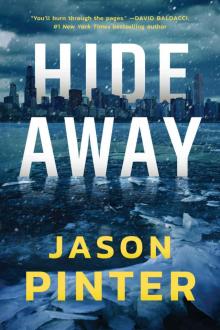 Hide Away (A Rachel Marin Thriller)
Hide Away (A Rachel Marin Thriller)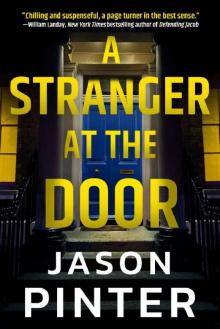 A Stranger at the Door (A Rachel Marin Thriller)
A Stranger at the Door (A Rachel Marin Thriller)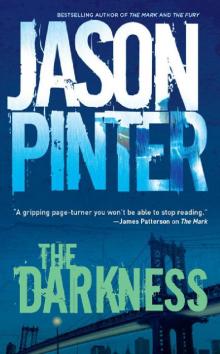 The Darkness hp-5
The Darkness hp-5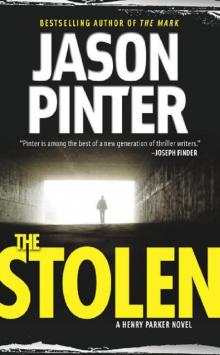 The Stolen hp-3
The Stolen hp-3 The Guilty hp-2
The Guilty hp-2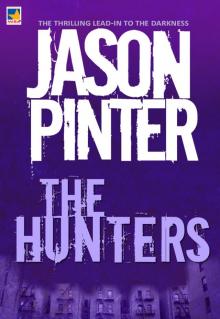 The Hunters
The Hunters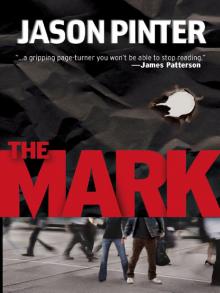 The Mark hp-1
The Mark hp-1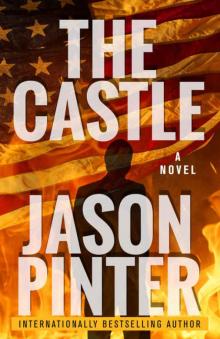 The Castle: A Ripped-From-The-Headlines Thriller
The Castle: A Ripped-From-The-Headlines Thriller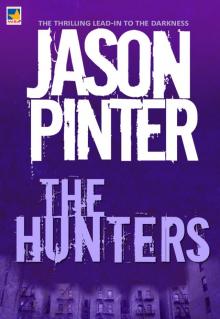 The Hunters (henry parker)
The Hunters (henry parker)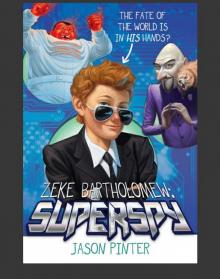 Zeke Bartholomew
Zeke Bartholomew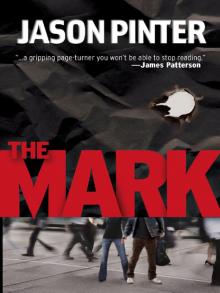 The Mark
The Mark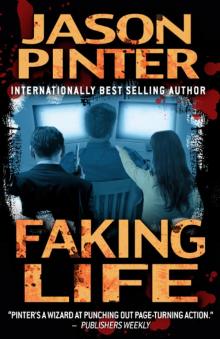 Faking Life
Faking Life![[Henry Parker 01.0] The Mark Read online](http://i1.bookreadfree.com/i2/04/08/henry_parker_01_0_the_mark_preview.jpg) [Henry Parker 01.0] The Mark
[Henry Parker 01.0] The Mark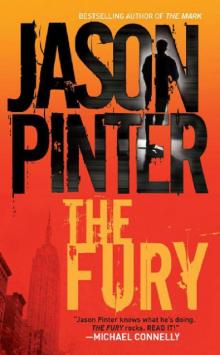 The Fury hp-4
The Fury hp-4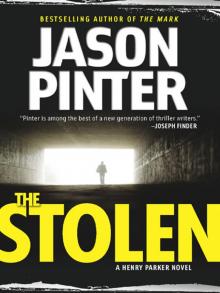 The Stolen
The Stolen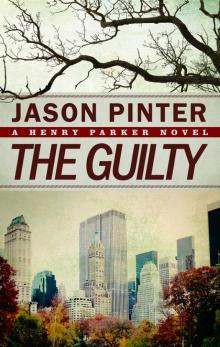 The Guilty
The Guilty